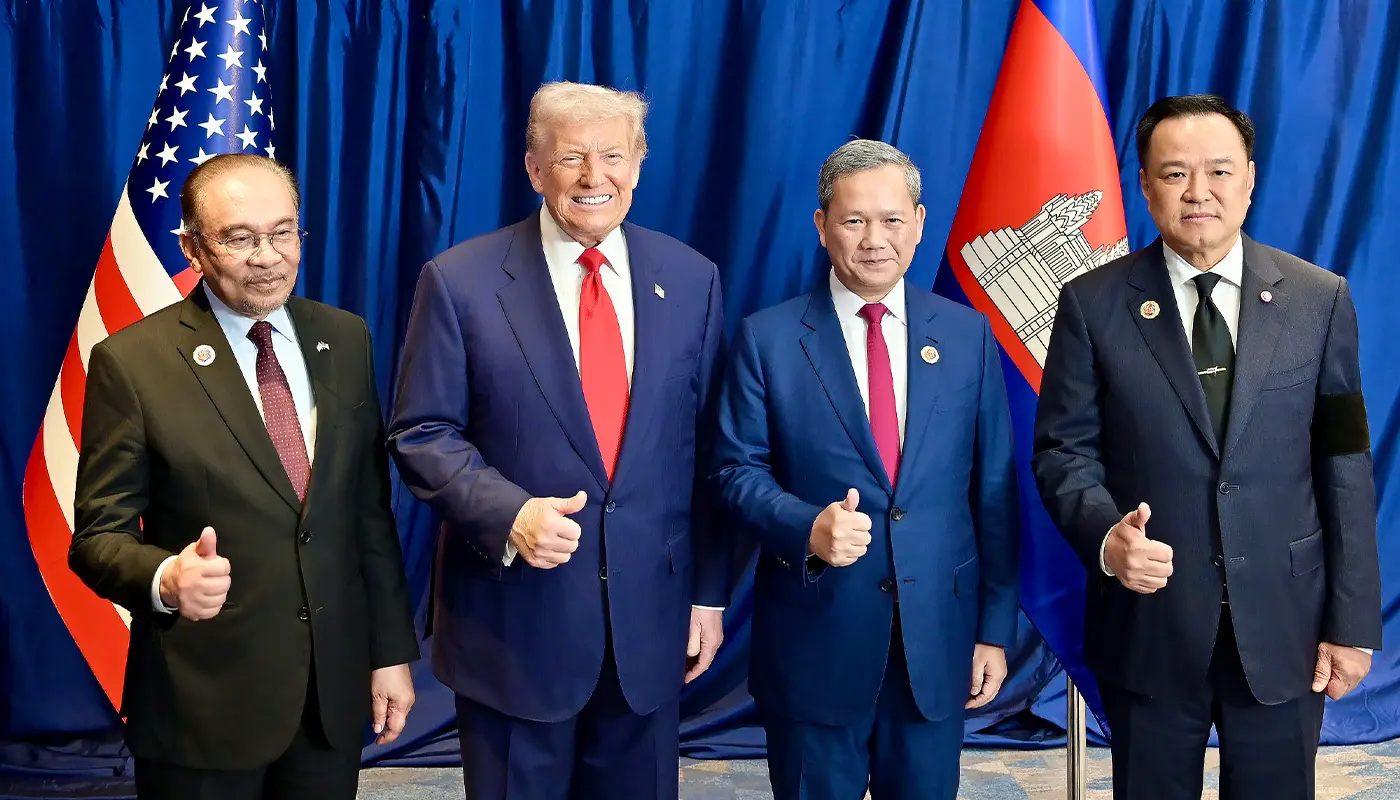In a decisive move following the signing of the landmark “KL Peace Accord” at the 47th ASEAN Summit in Kuala Lumpur, Thailand has committed to releasing 18 Cambodian soldiers detained during the recent border conflict, while Cambodia has vowed full implementation of the accord’s provisions.
The accord signed by Thailand’s Prime Minister Anutin Charnvirakul and Cambodia’s Prime Minister Hun Manet, and witnessed by both Malaysian Prime Minister Anwar Ibrahim as ASEAN Chair and US President Donald Trump, goes beyond a ceasefire.
It places obligations on both parties to withdraw heavy weapons, de-mine contested border zones, deploy observers and release detained soldiers, among other measures.
On the soldier-release by Thailand aspect
Under the joint declaration, Thailand will hand over the detained 18 Cambodian soldiers, described by officials as captured during the border hostilities in July 2025, once certain processes such as weapon withdrawals and humanitarian checks are underway.
Cambodia’s Commitment
Cambodian Prime Minister Hun Manet welcomed the peace accord as a “historic milestone” for both nations and pledged Cambodia’s “strong commitment to fully implementing the deal” during the signing ceremony.
He also expressed gratitude towards President Trump for his mediation efforts and thanked Malaysia and Prime Minister Anwar for facilitating the process.
“On behalf of the Cambodian peoples, I wish to express my deepest gratitude to United States President Donald Trump for his decisive leadership… I also wish to convey my sincere appreciation to Prime Minister Datuk Seri Anwar Ibrahim for his unwavering support and facilitation throughout this peace process until successful conclusion,” he said.
Key Elements of the KL Peace Accord & Implications
- Release of detainees: The release of the 18 soldiers is contingent on demilitarisation steps. Thailand has confirmed the processing is underway.
- Heavy-weapon withdrawal and monitoring: Both sides committed to pulling back heavy weaponry from their 817-kilometre border and establishing an ASEAN-observer mechanism to ensure compliance.
- Implementation challenge: While Cambodia publicly expresses full support for the accord, analysts caution that sustained political will, funding and on-the-ground cooperation will determine whether it holds.
- Broader regional role for ASEAN: This accord bolsters ASEAN’s credentials as not just an economic bloc, but a platform capable of resolving intra-regional defence and security disputes. The involvement of the US and Malaysia as brokers gives the deal additional weight.
Outlook
The commitment now is in the follow-through: the soldier release must materialise, heavy weapons must be removed, de-mining must begin and observers must be deployed.
If these steps succeed, the KL Peace Accord may set a precedent for how Southeast Asia addresses borderline disputes under ASEAN auspices.
For Cambodia and Thailand, success could mean a rebuilding of trust, new opportunities in cross-border trade and tourism, and relief for communities long affected by hostilities.
For Malaysia and the ASEAN Chairmanship, delivering this accord enhances diplomatic credentials and showcases the bloc’s relevance in a world of shifting power dynamics.






